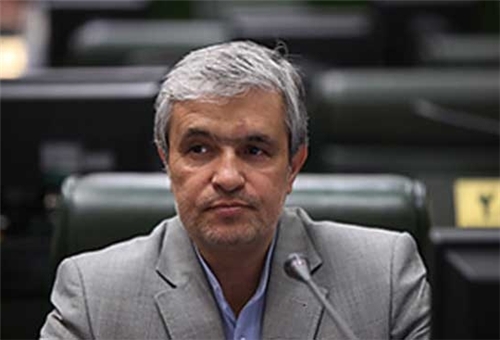MP: AP’s Misquote of Iranian Speaker Result of US Media’s Biased Approach

 A senior Iranian lawmaker condemned the AP’s recent report which misquoted Iranian Parliament Speaker Ali Larijani as saying that Iran has excessive enriched uranium and would use it as a bargaining chip in the upcoming talks with the world powers, and said it was the result of US media’s biased attitude and compliance with the White House.
A senior Iranian lawmaker condemned the AP’s recent report which misquoted Iranian Parliament Speaker Ali Larijani as saying that Iran has excessive enriched uranium and would use it as a bargaining chip in the upcoming talks with the world powers, and said it was the result of US media’s biased attitude and compliance with the White House.
“The targeted distortion of the remarks of the speaker of the Islamic Consultative Assembly (the parliament) by the Associated Press proved that it lacks commitment to the free media operation and sees its life dependent on the White House rulers,” member of the parliament’s National Security and Foreign Policy Commission Mohammad Reza Mohseni Sani told FNA on Saturday.
Associated Press quoted Larijani as saying in an interview that Iran has more enriched uranium than it needs and plans to use that as a bargaining chip in the upcoming nuclear talks in Geneva next week but it was rebuffed by the parliament later as “incorrect and completely baseless”.
Mohseni Sani said he was displeased to see that the US media have distorted the remarks of the Iranian officials twice in the last month, and said, “The western media are the Americans’ cover for soft war against the Iranian nation.”
His remarks alluded to a similar, but still worse, fabrication done by CNN during an exclusive interview with Iranian President Hassan Rouhani less than a month ago. CNN’s Christiane Amanpour on September 24 conducted an interview with Iran’s President Rouhani on the sidelines of the 68th Session of the UN General Assembly in New York which was full of not just mistranslations, but fabrication and falsification of the president’s remarks about the Holocaust.
While the Iranian president did not recognize the Holocaust, the CNN aired a translation which contained several words and sentences which were not uttered by the Iranian President.
After FNA protested at the CNN’s move, the American network stood by the translation and its report.
Later several reputable world media, including the Wall Street Journal, approved of FNA’s claims and criticized CNN.
FNA asked CNN to correct the translation, air it again and extend an apology, but the American network has refused to do so.







